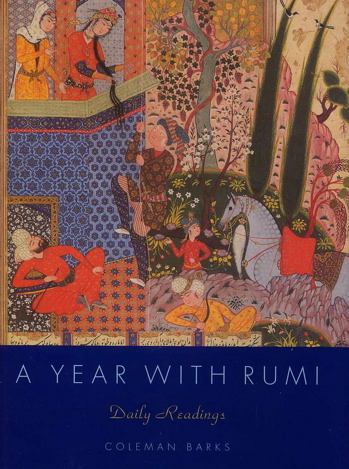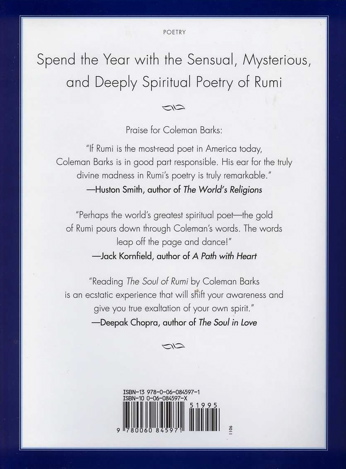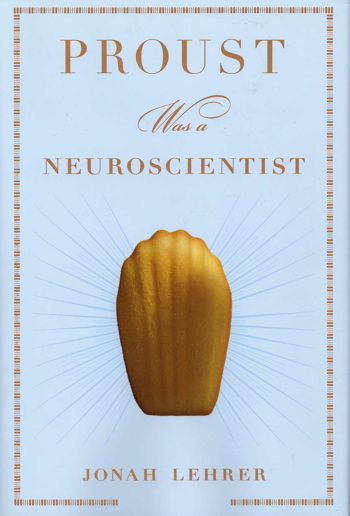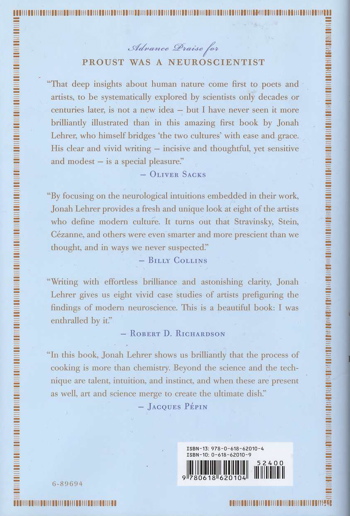Friday April 25, 2008 3:30 am Lethbridge Alberta
This page last updated on:
Saturday, April 26, 2008 9:49 AM
It is -2 C with a high forecast of +3 C. Sunrise 6:19 Sunset 20:39 Hours of daylight: 14:20

11:15 am
A. Morning Musings
I am having difficulty adjusting to the new time zone. I am wide awake at the moment so I may as well set up this web page for the coming day (when I will probably take a nap).
| Learning Category |
Planned Activities for Today |
Time |
| Literature |
Begin morning with a Rumi reading |
|
| Literature |
Continue reading "Proust was a Neuroscientist" by Jonah Lehrer |
3 hr |
B. Actual Learning Activities
11:00 am
I am clearly out of synch with Alberta at the moment. I just woke up. It is snowing again. Very pretty but one does hope that this will be the last gasp before we get more seasonable weather.
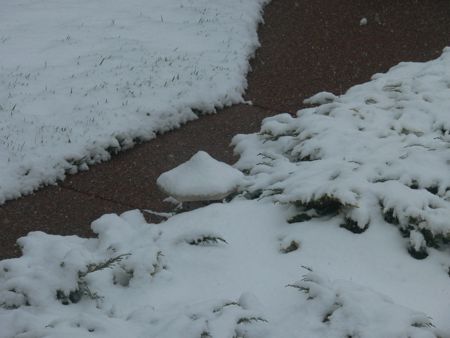
11:15 am
1:40 PM
I have finished reading "Proust was a Neuroscientist". Fantastic! I want to let my thoughts simmer before writing a few notes.
4:20 PM
My first reaction to reading "Proust was a Neuroscientist" is to reclassify my activities while reading this book as Psychology instead of Literature. Done. Now to make a few notes.
Proust was a Neuroscientist
Jonah Lehrer
I am reminded of the Louis Pasteur quote, "Chance favors the prepared mind.". I had read 5 of the 6 volumes of Proust's novel, "In Search of Lost Time" when I spotted this book in a bookstore. I am glad I bought it. This has turned out to be much better than I had hoped for.
There is a chapter for each of 8 important artists. Five of these are people whos work has always impressed me: Walt Whitman poet, George Eliot - writer, Marcel Proust - writer, Paul Cazanne - artist, and Virginia Woolf - writer. Each chapter compares the artist's work with the current findings in neuroscience, and makes a convincing case for the artist being years ahead of our scientific understanding of how the brain works.
Walt Whitman's poetry (Leaves of Grass) showed a strong connection between the body and the poetry he wrote. Neuropsychology is now recognizing the importance of the body in our mental activities. George Eliot focused on the inability of science to adequately explain all of human behavior. She recognized that we are much more than simple machines and argued passionately for a self that was capable of free choice. Proust's 6 volume novel emphasized that memory was much more erratic than popularly recognized. Cezanne's painting emphasized the nature of what we "really" perceive and that the brain then takes these stimuli and "makes sense" of them. Virginia Woolf demonstrated that our inner self is really very chaotic but that we nonetheless find a stability in all of this.
Walt Whitman
- "In 1855, after years of 'idle versifying', Whitman finally published his poetry. He collected his 'leaves' - printing lingo for pages - of 'grass' - what printers called compositions of little value - in a slim, cloth-bound volume, only ninety-five pages long." [p. 9]
| I am grateful for this explanation. I had always assumed that it was a subtle metaphor that I couldn't quite grasp. |
- "An avid Whitman enthusiast, William James was the first scientist to realize the Whitman's poetry was literally true: the body was the source of feelings." [p. 16]
- "James's answer was simple: without the body there would be no fear, for an emotion begins as the perception of a bodily change." [p. 18]
- "Modern neuroscience is now discovering the anatomy underlying Whitman's poetry. It has taken his poetic hypothesis - the idea that feelings begin in the flesh - and found the exact nerves and brain regions that make it true. ... Antonio Damasio ... In his view, the mind stalks the flesh; from our muscles we steal our moods." [p. 19]
| I have read Damasio's book "Descarte's Error" and thoroughly enjoyed it. |
George Eliot
- "... her [George Eliot] novels are ultimately concerned with the nature of the individual. ... If reality is governed by mechanical causes, then is life just a fancy machine? Are we nothing but chemicals and instincts, adrift in an indifferent universe? Is free will just an illusion?" [p. 26]
- "Eliot's art argued that the mind was 'not cut in marble.' She believed that the most essential element of human nature was its malleability, the way each of us can 'will ourselves to change.' No matter how many mechanisms science uncovered, our freedom would remain." [p. 26]
- "According to their [positivism] depressing philosophy, we were nothing but life-size puppets pulled by invisible strings." [p. 27]
- " 'Like dice in mid-air,' Gwendolyn is an unknown." [p. 34]
- "The intrinsic mystery of life is one of Eliot's most eloquent themes. Her art protested against the braggadocio of positivism, which assumed that everything would one day be defined by a few omnipotent equations." [p. 35]
- "Middlemarch, Eliot's masterpiece, contains two reductionists searching for what Laplace called 'the final laws of the world.' " [p. 36]
| I have come across many references to Middlemarch over the years. I really must read this in the near future. |
- "As Karl Popper once said, life is not a clock, it is a cloud. Like a cloud, life is 'highly irregular, disorderly, and more or less unpredictable.' " [p. 50 -51]
- "We are neither fully free nor fully determined. The world is full of constraints, but we are able to make our own way." [p. 51]
Marcel Proust
- "Proust made art out of the only thing he had: his memory." [p. 76]
| This is re-affirming. That was the primary reason why I continued to read "In Search of Lost Time". |
- "Proust ... believed that while art and science both dealt with facts ... only the artist was able to describe reality as it was actually experienced." [p. 77]
- "Neuroscience now knows that Proust was right. ... our senses of smell and taste are the only senses that connect directly to the hippocampus, the center of the brain's long-term memory. ... All other senses (sight, touch and hearing) are first processed by the thalamus, the source of language and the front door to consciousness. As a result, these senses are much less efficient at summoning up our past." [p. 80]
- "These questions cut to the core of Proust's theory of memory. Simply put, he believed that our recollections were phony. Although they felt real, they were actually elaborate fabrications. Take the madeleine. Proust realized that the moment we finish eating the cookie, leaving behind a collection of crumbs on a porcelain plate, we begin warping the memory of the cookie to fit our own personal narrative. We bend the facts to suit our story, as 'our intelligence reworks the experience.' Proust warns us to treat the reality of our memories carefully, and with a degree of skepticism." [p. 82]
- "Our memories exist as subtle shifts in the strength of synapses, which make it easier for neurons to communicate with one another. The end result is that when Proust tastes a madeleine, the neurons downstream of the cookie's taste, the ones that code for Combray and Aunt Leonie light up. The cells have become inextricably entwined; a memory has been made. ... scientists demonstrated that the act of remembering also changes you." [p. 84]
- "The uncomfortable reality is that we remember in the same way that Proust wrote." [p. 87]
Paul Cezanne
- "But Cezanne believed that light is only the beginning of seeing. 'The eye is not enough,' he declared. 'One needs to think as well.' " [p. 97]
- "Reality is not out there waiting to be witnessed; reality is made by the mind." [p. 97]
- "But this ambiguity is an essential part of the seeing process,as it leaves space for our subjective interpretations." [p. 107]
| This same principle applies to literature. |
Virginia Woolf
- "When Woolf looked inside herself, what she found was a consciousness that never stood still. Her thoughts flowed in a turbulent current, and every moment ushered in a new wave of sensation." [p. 169]
- "The point is that Mrs. Dalloway does draw herself together. She makes herself real, creating a 'world of her own wherever she happens to be.' This is what we all do every day. We take our scattered thoughts and inconstant sensations and we bind them together into somethng solid. The self invents itself." [p. 174]
- " 'To pursue truth with such astonishing lack of consideration for other people's feelings, to rend this thin veil of civilization so wantonly, so brutally, was to her so horrible an outrage of human decency. ' [p. 175]
| I immediately think of a tv program about an architect who exemplified this attitude while building a house that failed to take into consideration the neighbours in the vicinity. |
- "Surreal as it seems, the modernists got the brain right. Experiment after experiment has shown that any given experience can endure for about ten seconds in short-term memory. After that, the brain exhausts its capacity for the present tense, and its consciousness must begin anew, with a new stream. As the modernists anticipated, the permanent seeming self is actually an endless procession of disjointed moments." [p. 177]
- "This means that the mind is not a place: it is a process." [p. 177]
- "In fact, the more she investigated experience, the more necessary the self became to her. If we know nothing else, it is that we are here, experiencing this. Time passes and sensations come and go. But we remain." [p. 180]
- "Woolf realized that the self emerges via the act of attention." [p. 181]
- "As Noam Chomsky said, 'it is quite possible - overwhelmingly probable, one might guess - that we will always learn more about human life and personality from novels than from scientific psychology." [p. 187]
| A perfect ending to the book. One of my regrets is that I never pursued the idea of creating a psychology course that used only novels for a basis for discussion. |
Tags: psychology, neuropsychology, art, literature, Proust, Whitman, Woolf, Cezanne, Eliot




